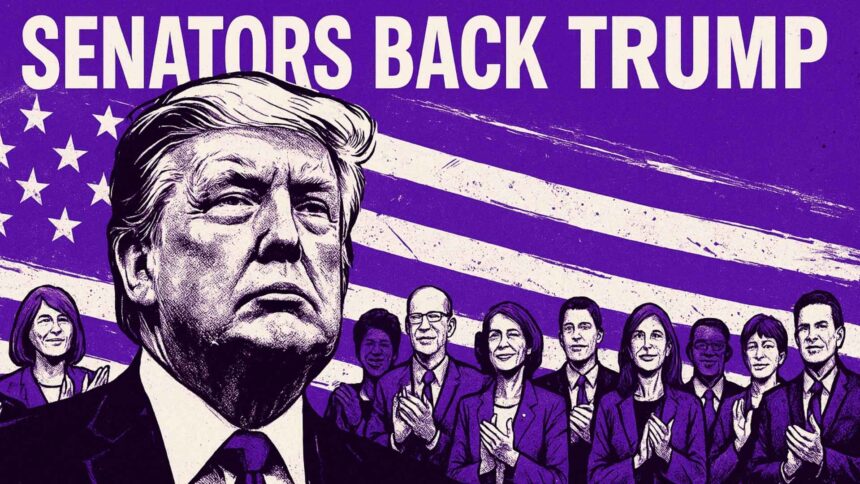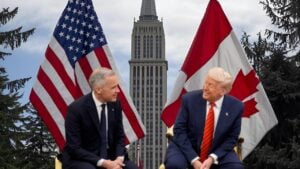President Donald Trump won powerful Capitol Hill backing for a hard-line tariff threat aimed at Beijing’s purchases of Russian crude. A bipartisan Senate bill with 85 cosponsors would authorize tariffs of up to 500% on goods from countries that continue to buy Russian oil and other energy, according to a joint statement from the measure’s authors, Sens. Lindsey Graham and Richard Blumenthal.
The legislation, known as the Sanctioning Russia Act of 2025, is designed to choke off revenue that Moscow still earns from energy exports through buyers such as China. The proposal has not cleared the chamber and no floor vote is on the calendar.
In their joint statement, Graham and Blumenthal said the bill’s supermajority support would give the administration a legal “sledgehammer” to use against Russia’s customers if diplomatic efforts fail.
The senators said in a press release: “This bill has 85 cosponsors in the Senate and it would pass incredibly quickly.”
The measure would let the White House escalate penalties as needed, including secondary tariffs on countries that keep purchasing Russian oil, gas, or uranium.
If enacted, it would mark one of the most sweeping tariff authorities ever granted by Congress in response to a foreign war.
The push aligns with the administration’s pressure campaign on countries that have kept buying discounted Russian barrels since the 2022 invasion of Ukraine.
Trump has paired sanctions rhetoric with outreach to allies and partners to curtail those flows.
In recent months, the president has tied broader Russia policy to energy trade and allied purchasing behavior, building on earlier signals that Trump backs new sanctions in tandem with reductions in Russian oil buying.
The White House has also urged NATO to stop buying Russian oil to tighten the price cap regime and limit Kremlin revenue.
Treasury Secretary Scott Bessent has publicly warned that Beijing’s continued purchases of Russian oil leave it exposed to steep U.S. duties if Congress finalizes the authority.
The administration has framed the threat as leverage to hasten serious peace talks, while arguing that energy revenues remain a key lifeline for Moscow’s war effort.
Chinese officials have said energy security and procurement choices are sovereign decisions. Beijing has not signaled any shift away from Russian crude.
A 500% tariff would effectively wall off targeted trade and could redraw energy and shipping routes. Any U.S. move against China would likely invite retaliation, with knock-on effects for U.S. exporters, global supply chains, and inflation.
The tariff threat also intersects with the administration’s broader China trade posture, where existing duties on goods from electric vehicles to clean-tech inputs have already raised compliance costs and complicated sourcing decisions for manufacturers.
If tariffs curtail Chinese demand for Russian barrels, Moscow could seek deeper discounts or alternative buyers, while OPEC+ policy and freight capacity would become more pivotal.




















